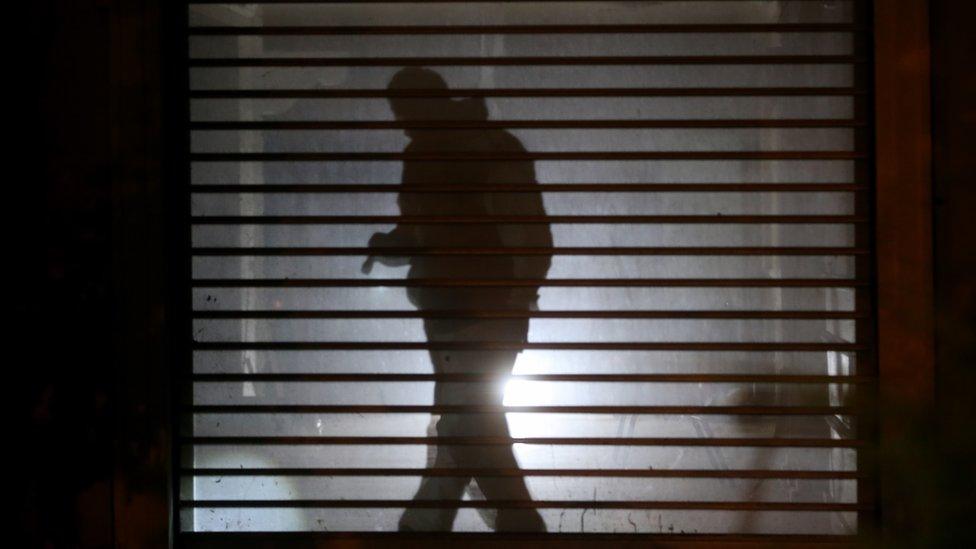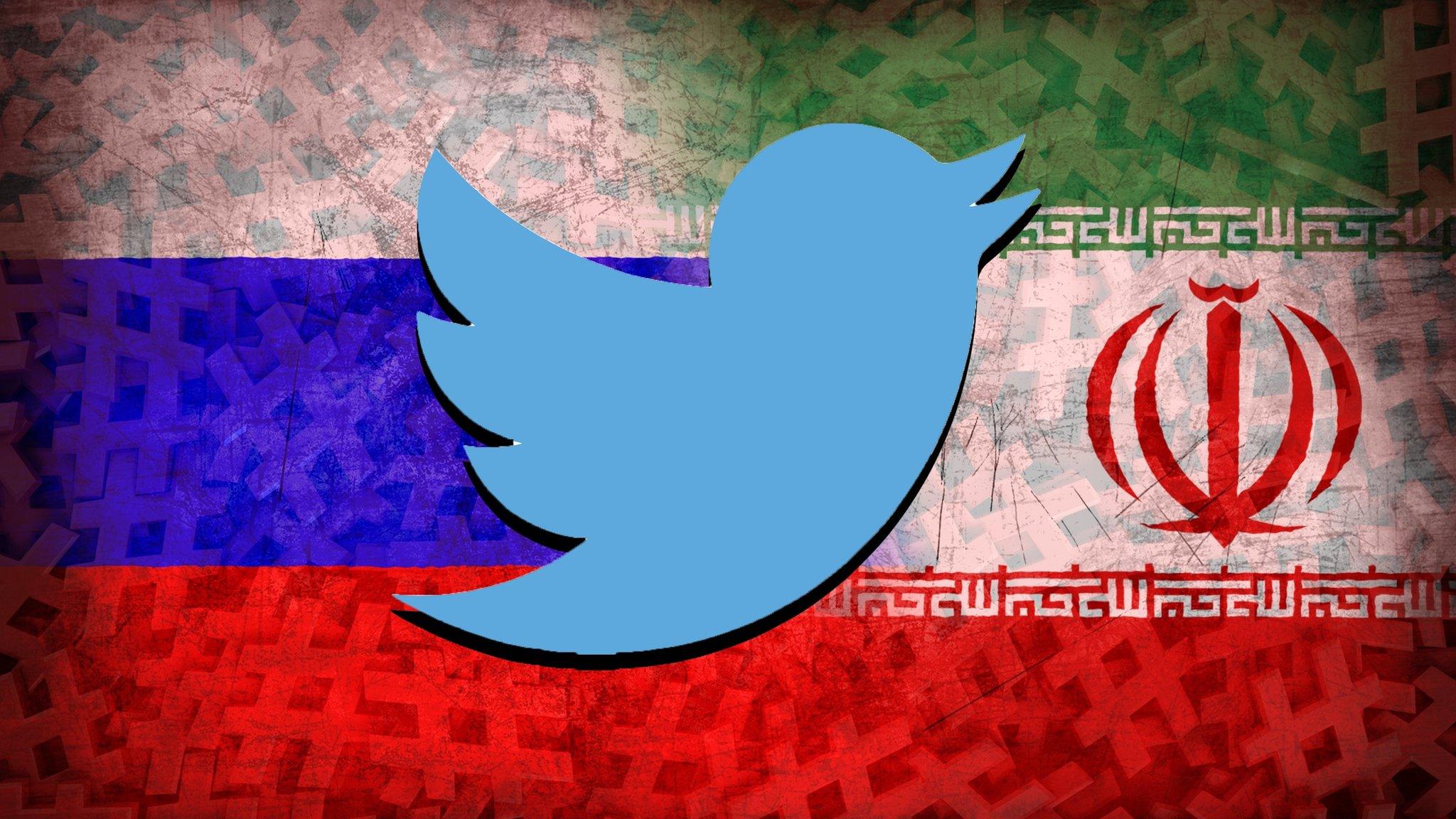Khashoggi: Bots feed Saudi support after disappearance
- Published

Turkish crime scene investigators inspected the Saudi consulate on Wednesday
Suspected bot accounts are attempting to shape the social media narrative following the disappearance of Saudi journalist Jamal Khashoggi.
Arabic hashtags expressing support for de facto Saudi leader Crown Prince Mohammed Bin Salman, condemning news organisation Al Jazeera and urging users to "unfollow enemies of the nation" were among those amplified by the involvement of bot networks alongside genuine users.
Twitter has suspended a number of bot accounts.
Mr Khashoggi is missing, presumed dead, after he was seen entering the Saudi consulate in Istanbul on 2 October.
Turkish officials allege the journalist, who had been critical of the Saudi regime, was killed there.
On 14 October, the Arabic hashtag translating as "we all have trust in Mohammed Bin Salman" was among the top global trends, featuring in 250,000 tweets. Additionally, "We have to stand by our leader" was used more than 60,000 times.
On Wednesday, a hashtag translating as "unfollow enemies of the nation" was also highly used, while in the past 24 hours the term "campaign to close Al Jazeera, the channel of deception" has gained traction, used close to 100,000 times on the social network.
Ben Nimmo shares his three main ways to spot a bot with BBC Arabic
Saudi Arabia has previously called for Al Jazeera, which is funded by Qatar, to be closed. In 2017, several of Qatar's neighbours cut diplomatic ties with the tiny Gulf state.
Bot networks were used by both sides in an effort to control the conversation on social media during the crisis.
You might also be interested in:
Ben Nimmo, Information Defence Fellow at the Atlantic Council, analysed one of the Arabic-language hashtags with bot involvement.
"Unfollow enemies of the nation" was used in excess of 100,000 times. The vast majority of that came through retweets, which can be a signal of bot activity.
Allow X content?
This article contains content provided by X. We ask for your permission before anything is loaded, as they may be using cookies and other technologies. You may want to read X’s cookie policy, external and privacy policy, external before accepting. To view this content choose ‘accept and continue’.
BBC Monitoring confirmed Mr Nimmo's analysis.
Accounts which had been dormant for a long time were suddenly tweeting again, posting identical or near-identical material to other suspicious accounts.
Others were newly-created or exhibited other characteristics typical of bot accounts.
Attempts to control and manipulate social media conversations have become an increasingly prominent global issue.
On Wednesday, Twitter published more than 10 million tweets from suspected state-backed Russian and Iranian "troll farms".
While US national security chiefs have warned of "a pervasive messaging campaign by Russia to weaken and divide the US".
- Published17 October 2018

- Published2 March 2018
